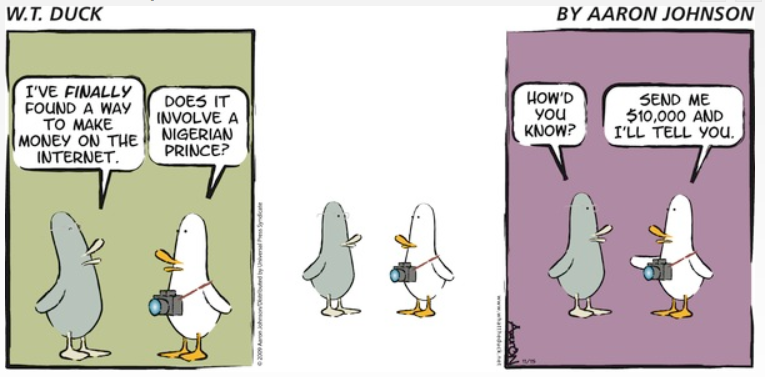Looks Too Good To be True
Post on: 16 Март, 2015 No Comment

Ponzi and Pyramid Schemes
A Ponzi scheme is essentially an investment fraud where the operator promises high financial returns or dividends that are not available through traditional investments. Instead of investing victims’ funds, the operator pays dividends to initial investors using the principle amounts invested by subsequent investors. The scheme generally falls apart when the operator flees with all of the proceeds, or when a sufficient number of new investors cannot be found to allow the continued payment of dividends.
This type of scheme is named after Charles Ponzi of Boston, Massachusetts, who operated an extremely attractive investment scheme in which he guaranteed investors a 50 percent return on their investment in postal coupons. Although he was able to pay his initial investors, the scheme dissolved when he was unable to pay investors who entered the scheme later.
Pyramid Scheme
Pyramid schemes, also referred to as franchise fraud, multi-level marketing, or chain referral schemes, are marketing and investment frauds in which an individual is offered a distributorship or franchise to market a particular product.
Multi-level marketing is a system of selling in which you sign up other people to assist you and they, in turn, recruit others to help them. Some entrepreneurs have built successful companies on this concept because the main focus of their activities is their product and product sales.
However, there are many multi-level distributorship schemes that are nothing more than sophisticated chain letters. They operate as a pyramid, claiming participants can earn lots of money by concentrating most, if not all, of their efforts on recruiting distributors rather than selling a product.
The success of a pyramid distributorship for each and every distributor depends on continuously getting additional people to join the pyramid. However, there is a practical limit to how many distributors can be found and to how many product units they can sell or use.

Furthermore, you cannot control the efforts of the individuals under you to any significant degree. Many of them will have no real commitment to the program. They may have been high-pressured, just like you, to become a distributor.
Fraudulent pyramid schemes typically violate the Lottery Statute (Title 18, United States Code, Section 1302). They contain all three elements of a lottery: prize (expectation of monetary or other gain from participation in the pyramid); chance (the monetary return you may receive from your participation is entirely up to chance, that is, dependent on the efforts of those below you in the pyramid), and consideration (the fee you pay to become a distributor). Frequently, the entrance fee into the pyramid is very high. In many cases, the money spent for such an entrance fee can often be considered lost the moment you pay.
To protect yourself against falling victim to a multi-level marketing scheme, note whether the basis of the promotion is the sale of a product at the retail level, as opposed to an emphasis on recruiting more and more distributors to help you increase your income.
There is no easy way to wealth. A multi-level marketing scheme is no exception, other than perhaps for the promoter who originates it and receives the large fees from unsuspecting victims.
Online Tips:














